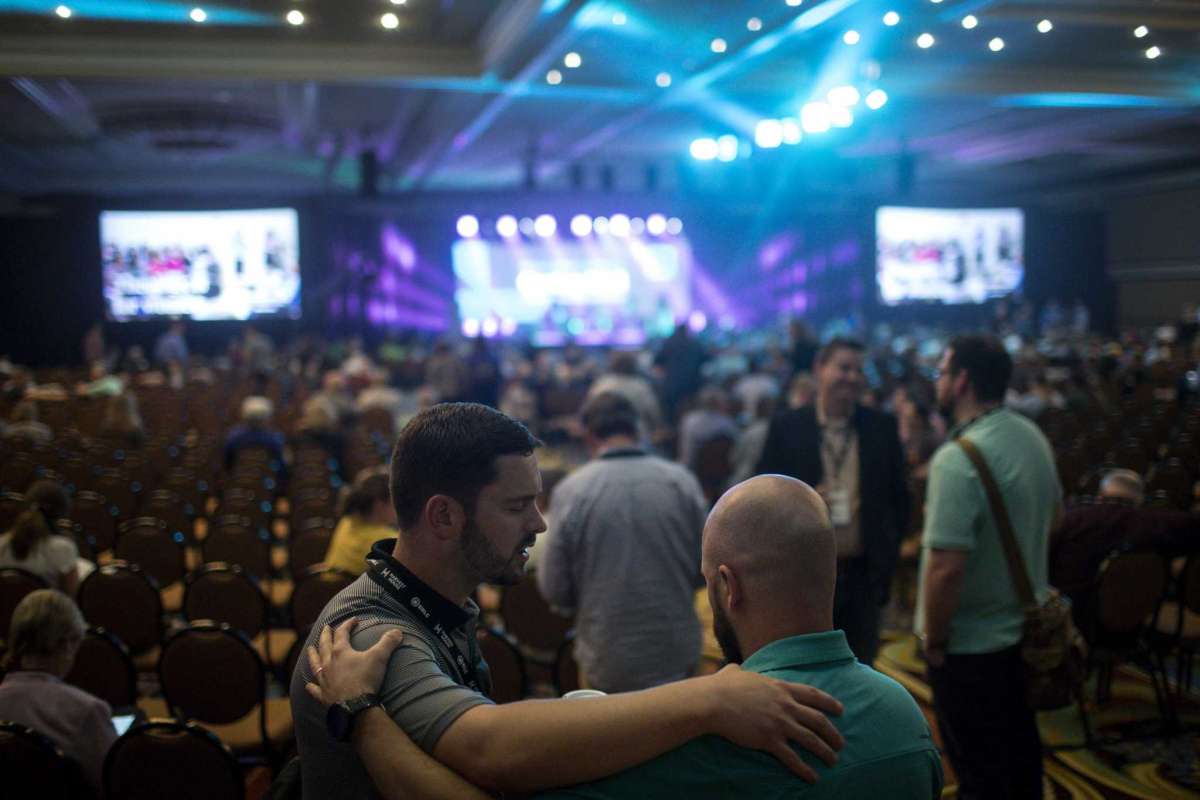What Does Covid-19 Mean for Southern Baptist Abuse Reforms?
By Robert Downen
Sexual abuse survivors this week called on Southern Baptist leaders to commit to sustained action on abuse reforms despite the faith group not meeting this year because of COVID-19. They hope that leaders such as SBC President J.D. Greear, who will now have a third term as president because the faith group’s annual meeting was canceled, will push for more robust policies on abuse. This year’s meeting would have been the second since the publication of Abuse of Faith, a Houston Chronicle and San Antonio Express-News investigation that found hundreds of Southern Baptist pastors and church leaders had been convicted of sexual abuses in the last 20 years. They left behind more than 700 victims, nearly all of them children. Rachael Denhollander, who has been advising leaders on abuse policies, said she hopes Greear uses his platform to push back against those who’ve been complacent or, in some cases, hostile to reforms. While SBC presidents don’t have the authority to implement sweeping reforms or dictate the affairs of any of the faith group’s 47,000 autonomous churches, their priorities are important, Denhollander said, and their actions trickle down to the local church level. “I hope to see significant forward movement in confronting sexual abuse,” said Denhollander, who was the first person to come forward about abuses by now-imprisoned USA Gymnastics doctor Larry Nassar. “More direct interaction with survivors and advocates who’ve been on the front lines.” That includes those such as Christa Brown, a longtime activist and abuse survivor. In response to Greear’s third term in office, Brown again requested the creation of a database that would track abuse allegations against those who’ve worked in SBC churches. Greear has previously said the idea could be part of a package of reforms, and other prominent leaders have expressed openness to a similar idea, though it has not yet been seriously discussed publicly. Greear’s office declined to offer specifics on what he’ll pursue during his third term. SBC presidents are typically limited to two years in office, and Greear’s office said he is still working on a more concrete agenda for his unexpected third year. In a speech to executive committee members earlier this year, Greear did advocate for some reforms, including mandatory background checks for nominees to SBC committees. Oklahoma pastor Wade Burleson said he hopes that’s the case. An outspoken advocate for abuse issues and reforms, Burleson has been complimentary of actions taken by Greear and others since the Chronicle’s report. But, he added, the SBC needs to shift its focus from “raising awareness” about abuse to having “specific and intentional” conversations about potential reforms to combat it. Greear and other leaders have often said that confronting the abuse issue will require a shift in the SBC’s broader culture. To do that, Burleson said, the SBC needs to be more willing to discuss abuses — and failures to handle them — when they involve prominent pastors or church figures. That also means elevating more survivors who are critical of the SBC or who may have left organized religion entirely. Similar critiques were made ahead of a three-day conference last year that focused solely on sexual abuse. Since then, some leaders — including Greear — have been more outspoken about mistreatment of survivors. Earlier this year, a small group of executive committee leaders sought to have Greear censured over comments he made to the Chronicle, in which he urged churches to exercise caution before hosting disgraced ex-leader Paige Patterson. “We have a tendency to point our finger at people we don’t know and we hesitate putting a spotlight on people we do know, and that bothers me,” Burleson said. “For us to have the spirit of Christ, we can’t make a distinction between high-profile and not-high-profile leaders.” At last year’s meeting, thousands of church delegates empowered a committee to make “inquiries” into churches’ handling into sexual abuse and, if necessary, recommend that they be removed from the SBC. Also approved was a constitutional amendment that, among other things, explicitly barred convicted sex offenders from working in SBC churches. The amendment needs to be approved at two consecutive SBC meetings to take effect. A spokesman for the executive committee, however, said that the one year delay won’t really affect the SBC’s response to abuses. Inquiries into churches will continue, said spokesman Jonathan Howe, and the committee will continue meeting and could refer bad-acting congregations for removal. So far, the committee has recommended one church be removed: Ranchland Heights Baptist Church in Midland, which is pastored by a convicted sex offender.
|
.
Any original material on these pages is copyright © BishopAccountability.org 2004. Reproduce freely with attribution.
